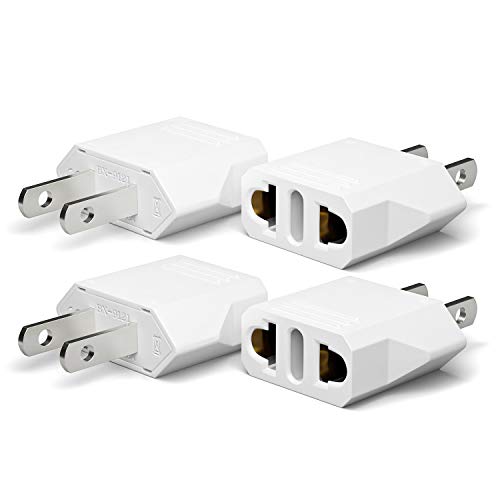
Why Cables & Adaptors Still Matter in a Wireless World
Table of Contents
- Introduction
- Wireless Isn’t Always Better
- Speed & Power: The Wired Advantage
- Reliability You Can Count On
- Must-Have Cables in 2025
- Adaptors That Solve Real Problems
- How to Future-Proof Your Cable Collection
- Final Thoughts
- FAQs
Introduction
It’s 2025, and everything from headphones to charging pads has gone wireless. So, are cables & adaptors a thing of the past?
Not even close.
In fact, they’ve never been more important. Whether you’re transferring massive files, gaming, editing videos, or just charging your devices efficiently—cables and adaptors are still the real MVPs.
Let’s dive into why.
Wireless Isn’t Always Better
Sure, wireless is sleek and convenient. But it has its flaws—think slower speeds, battery drain, interference, and dropped connections.
Bluetooth headphones cut out.
Wireless chargers take forever.
Cloud transfers fail mid-upload.
Cables? They just work. Every time.
Speed & Power: The Wired Advantage
Nothing beats the speed of a good cable.
- USB-C to USB-C (with Power Delivery) can charge a laptop to 50% in under 30 minutes.
- Thunderbolt 4 cables transfer files at 40Gbps.
- HDMI 2.1 supports 8K video at 60Hz with no lag.
Wireless simply can’t compete with that kind of performance. It’s like comparing a sports car to a skateboard.
Reliability You Can Count On
If you’re working remotely, gaming online, or running a presentation—one glitch can ruin everything.
With a cable, you get:
✅ Consistent data flow
✅ No signal loss
✅ No interference from nearby devices
✅ No need to worry about battery life
It’s stable, secure, and fast—everything wireless wants to be.
Must-Have Cables in 2025
Here’s your essential 2025 cable checklist:
- USB-C to USB-C (PD) – For phones, tablets, and laptops
- USB-A to Lightning – For older Apple devices
- HDMI 2.1 – For gaming consoles, monitors, and TVs
- Ethernet Cable – For uninterrupted, lag-free internet
- Multi-tip Charging Cable – Great for travel (Lightning + USB-C + Micro-USB)
Adaptors That Solve Real Problems
Adaptors are like little tech superheroes. These are the ones you’ll actually use:
- USB-C to HDMI – Mirror your phone or laptop to a TV
- Lightning to AUX – For wired headphones on iPhones
- USB-A to USB-C – Connect old accessories to new devices
- Multiport USB Hub – Turn 1 port into 5
They’re small, affordable, and save you from tech disasters daily.
How to Future-Proof Your Cable Collection
Here’s how to make sure you’re ready for the future:
✅ Choose Certified Cables
Always go for MFi (Apple) or USB-IF certified cables to avoid damage.
✅ Invest in Quality
Braided nylon or reinforced tips last way longer than cheap plastic ones.
✅ Go Versatile
Multi-use cables and hubs save space, money, and time.
✅ Stay Updated
Tech evolves—make sure your cables support the latest standards like USB4 or HDMI 2.1.
Final Thoughts
Despite the wireless hype, cables & adaptors remain essential. They offer speed, reliability, and peace of mind in ways that wireless can’t always deliver.
Whether you’re charging up for the day, editing high-res videos, or just making sure your music doesn’t cut out mid-song—never underestimate the power of a good cable.
Cables might not be glamorous, but they get the job done—and in a world that runs on tech, that’s what really counts.
FAQs
1. Are wireless chargers slower than wired ones?
Yes, most wireless chargers are slower than fast-charging USB-C or Lightning cables with Power Delivery.
2. What’s the difference between USB-C and Thunderbolt?
Thunderbolt is a faster, more powerful version of USB-C used for advanced devices and 4K displays.
3. Do adaptors affect charging speed?
Cheap or low-quality adaptors might. Always use high-quality, certified adaptors to maintain performance.
4. Can I use one cable for all my devices?
With a multi-tip cable (Lightning, USB-C, Micro-USB), yes! It’s great for travel and daily use.
5. What makes a cable future-proof?
Look for the latest standards like USB4, Thunderbolt 4, or HDMI 2.1. These will support new devices for years.
sponsor post: Europe Vaccines Market Size, Competitors Strategy, Regional Analysis and Industry Growth by Forecast (2019-2027)




